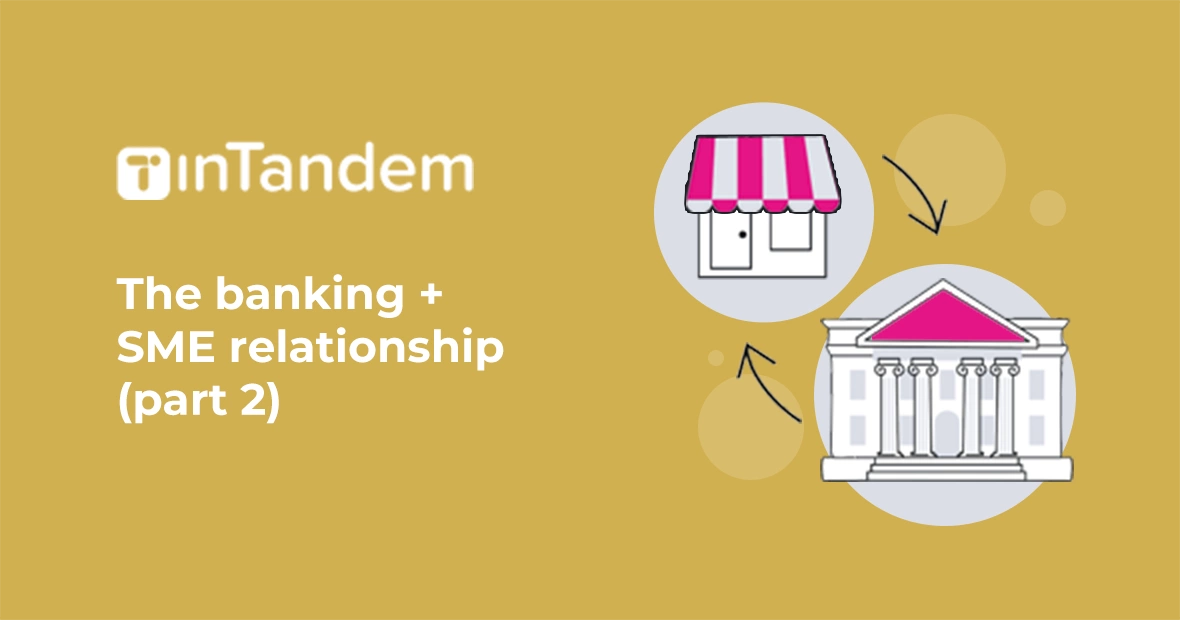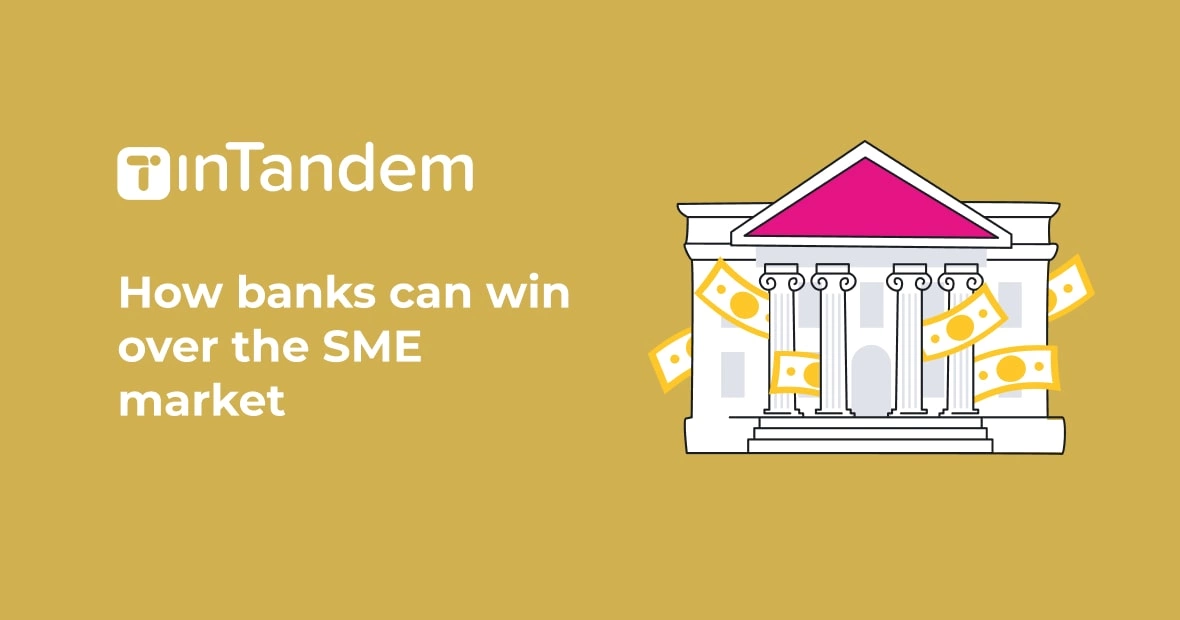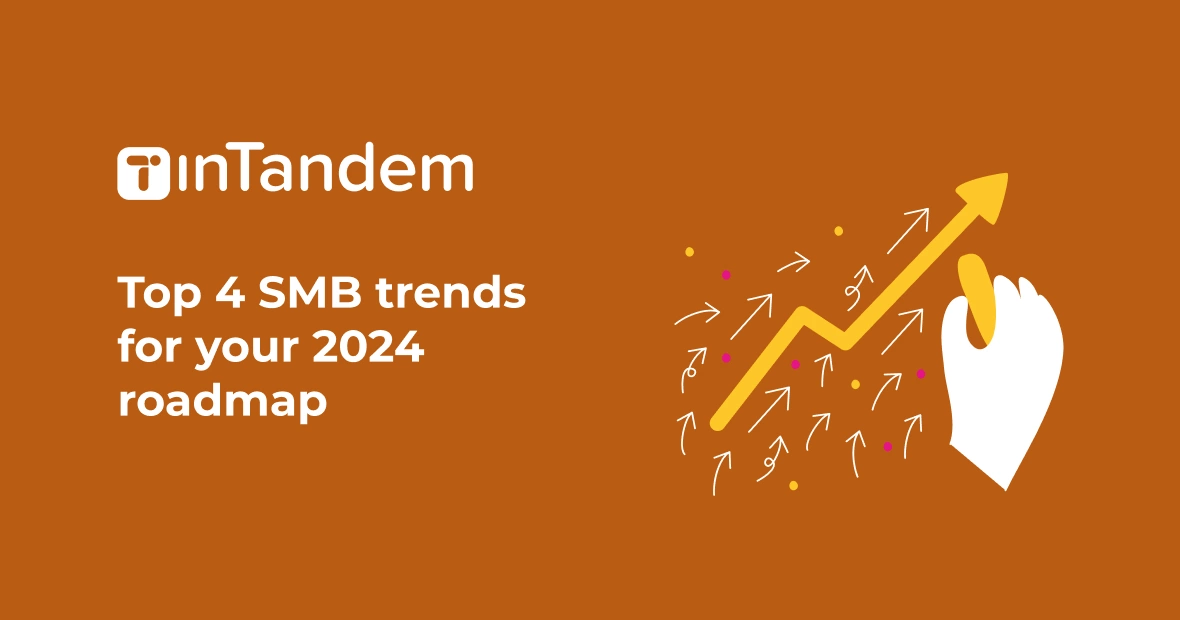In the US and much of the Western world, vaccines are rolling out, and the focus has shifted to enabling and smoothing the way for economic recovery. And as McKinsey neatly put it, the recovery will be digital.
Banks have work to do, building a new position within the revamped digital business ecosystem that values processes at least as much as products, and relationships at least as much as transactions. Back in 2019, Forrester was already warning that banks, having neglected small businesses for a decade or more, were at risk of edging themselves out of the ecosystem entirely.
Post-COVID, the issue has only become more acute. Small businesses coped with a lot during the pandemic and worked hard to survive. They raced to enable work from home, pivoted to offer digital products, and hastily adopted digital payment methods.
Our own survey found that 33% of small businesses moved to online service fulfilment for the first time, while Cisco’s data indicates that 69% underwent a digital transformation during 2020.
Now small businesses are ready to drive growth, with fully 92% of small business owners expecting their business to thrive over the next three to five years. But they know it won’t happen on its own, which is why they are eager to upskill. Indeed, today’s contractors and gig workers invest more than salaried workers in updating their skills regularly.
Banks have an opportunity here to step in and help, breaking out of their strict definition as providers of financial products and banking tools to serve as centers of lifelong learning for small businesses.
Help businesses access data insights to support growth
Data is the new oil, but many SME owners don’t know how to tap into it. Some of them need help gathering and storing their data, while others just need guidance about choosing and deploying machine learning (ML) and artificial intelligence (AI) tools to mine their data for meaning.
Banks can seize the opportunity to provide the powerful business analytics tools that SMEs need to grow their business, rather than stepping back and leaving this to FinTech or e-commerce platforms. Help small business owners track the metrics and data points that enable better income and sales forecasting, reveal emerging opportunities and risks, and underpin better decision making.
The same analytics tools also help SME owners know in advance when they’re going to need more funding and which types of loans to apply for, leading seamlessly into actually getting a loan from the same bank assisting with their business organization.
Refine your SME product offering
Banks are at risk of being pushed out of the business ecosystem by the likes of Amazon and eBay. These platforms possess rich SME insights and are expertly analyzing them to develop the financial and business products SMEs need and suggest them at the right time.
At the same time, FinTech payment providers like Square, which was recently granted a banking charter, are threatening banks on their home turf.
Banks need to rival these competitors by offering their own valuable small business tools and resources that attract small business users.
When small business owners use your free calculators, knowledge centers, and educational resources, they leave behind meaningful data that reveals their pain points and concerns. Banks can apply those insights to offer the right loans, business tools, etc. to the right SME owner at the right time, thereby refining their offering and attracting more SME customers.
Open up access to loans
Banks may be averse to the risks associated with lending to small businesses that are new or involved in certain fields, but SMEs that struggle to clear the high bar set by banks are turning to other loan sources like FinTech platforms, P2P lending, and new e-commerce funding options.
One way to resolve the standoff is to improve the relationship between banks and small business borrowers. The more you know about your SME customers, the more confident you’ll feel about extending them credit or offering them a loan, even if they don’t meet your standard requirements.
When SMEs use your educational resources, you gain a deeper understanding of their financial position, and you can track their learning achievements, empowering them to be fiscally savvy. Banks can then make better and faster decisions about loans and credit allowances, reducing risk and opening up lending for small business owners.
Strengthen trust relationships with small business customers
If the only interaction that small business owners have with their bank is to receive warning letters about the need to repay a loan or that their business account is in the red, they aren’t likely to feel positively about it, or make that bank their first port of call for funding in the future.
Providing educational resources turn banks from a lofty entity, controlling access to funds and admonishing SMEs for running a deficit, into a trusted partner whom SMEs turn to first for help and support.
For example, 66% of small business owners who say their finances aren’t in order also say they don’t know where to start. Banks that step in to help them will be the first place they turn for loans, digital tools, and other products in the future.
Small business education should be part of the new banking charter
Banks have spent a long time sitting on the sidelines of the small business struggle, torn between a desire to support the small business ecosystem and fear of a wave of defaulted loans.
The rise of new SME funding options, the appearance of new banking competitors, and the increasing need of small business owners are forcing them to step up to the plate. While capital and business management tools are key components, education and advice are areas where traditional financial institutions have a clear edge over FinTech.
By providing a range of educational resources that meet the needs of small business owners, banks and financial institutions can strengthen their trusted relationship with small business customers, increase their confidence and capability to offer business loans, improve the relevance of the banking products they offer, and ultimately help stimulate mutually beneficial growth.


























